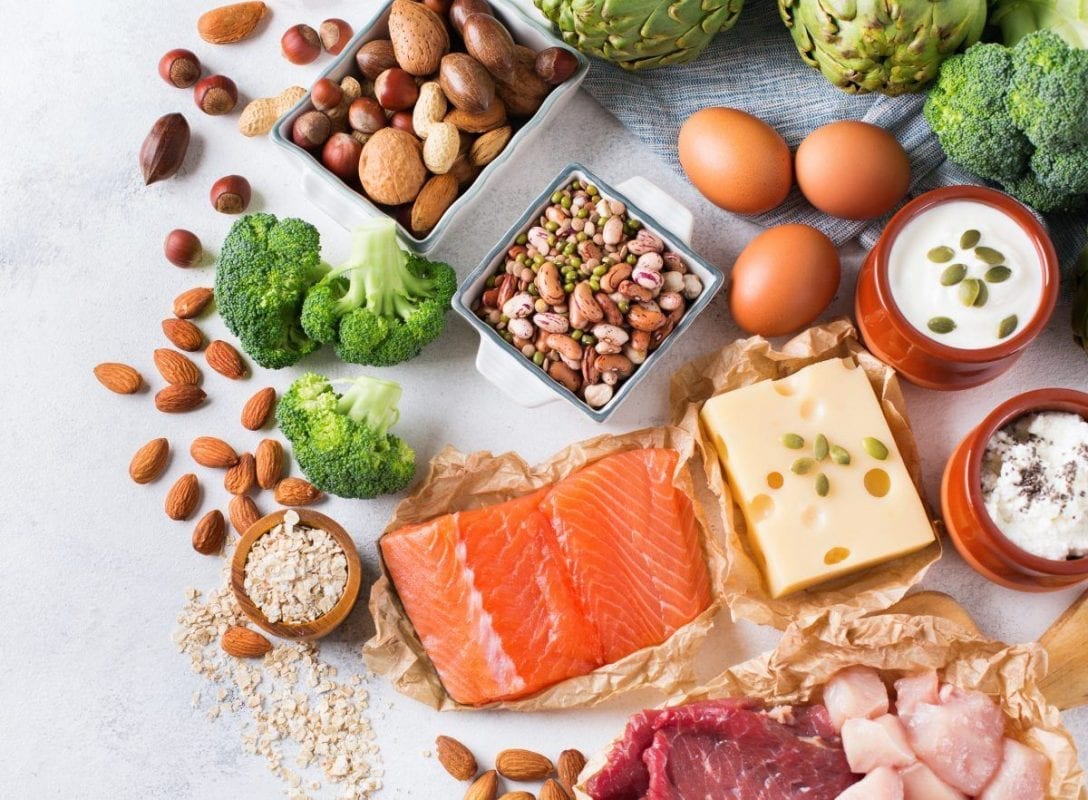In recent times, there has been a growing debate about what is best for the body – plants or animals? While scientists continue to work on the definitive answer to this question, what they have found are important elements within both types of food sources that are essential to the make up of our healthy bodies. One of these is protein.
What is protein?
Protein is an essential macronutrient that our body needs to ensure our muscles, bones, skin, hair, and virtually every other body part or tissue remain strong and healthy. Protein is a key part of any diet and an average person needs around 0.8 grams of protein per kilo of lean body weight each day. Protein is found in a large range of food types and sources, most famously from meat, however not all protein “packages” are created equal.
Amino Acids
No food is made up singularly of protein. All food comes with a range of nutrients, so it is essential to pay attention not only to the amount of protein within your food source, but what other nutrients are in the food. The most important thing to consider is that there is no one ‘protein’, but several different proteins that are diverse, varied and offer multiple unique benefits. When we look at proteins on a molecular level, they are made up by tiny organic compounds linked together called amino acids. There are 20 different kinds of amino acids which are divided into two main groups: essential and non-essential. The nine essential amino acids are the ones that the body cannot make on its own, so it is essential that we get them from a range of protein-rich food sources. While most people associate protein with animal products, it is also heavily present in plant products such as soy, nuts and legumes, which brings us to the burning question, what is the difference between animal and plant-based protein?
As stated earlier, there is no one simple answer to this question, but we can break the debate down into simple scientifically-proven facts about each type of protein source.
Animal based protein:
Pros:
- Animal proteins, including products such as red and white meats, eggs, and milk are complete proteins, meaning they provide all of the essential amino acids our body needs
- Animal products provide the highest-quality protein sources
- Protein from animals is easily absorbed, and as such has been linked to faster levels of muscle growth in gym-goers
- Animal products contain minimal carbohydrates, making a low-carb diet easy
Cons:
- Animal products are high in fats, which can lead to several health risks such as increased risk of heart disease, stroke, and early death.
- Processed meats increase the risk of dying from heart disease
- The ongoing strain of creating animal products is detrimental to the environment
Plant based protein
Pros:
- Plant-based protein has a much lower impact on the environment
- Consuming plant-based protein has been linked to reduced body weight
- When taking in plant protein, the amount of unhealthy fatty acids in a diet is often minimalised without the consumption of animal protein food sources.
- Studies show that people on vegetarian or vegan diets are at a lower risk of certain diseases including cancers, type 2 diabetes, hypertension, obesity, and ischemic heart disease
- When plant-based sources such as nuts contain fat, they are generally “good” fats
- Plant proteins also offer other essential nutrients such as fiber, which is only naturally sourced from plants. This not only doubles the benefits of some plant-based products, but is also greatly beneficial for anyone facing digestive problems, as fiber and digestive enzymes can help ease digestion and absorption
- Most plant proteins are also hypoallergenic, meaning it’s very unlikely your body will respond negatively to them.
Cons
- There are fewer plant-based products that contain all nine essential amino-acids, meaning that a larger range of plant-based products must be consumed each day
- Plants are naturally lower in protein content, and thus requiring you to eat more food to obtain the same amount of most amino acids that would be obtained in a serving of animal-based protein
- Plant-based proteins also contain starch, making it very difficult to follow a low-carb diet
One thing to pay attention to is the rate at which your body can actively absorb protein. Consider the bioavailability – how well you absorb protein – of your food. For example, tofu is 64% bioavailable, beef comes in at 74%, and soybeans are 96% bioavailable.
With a well-balanced diet, it is clear that plant-based diets hold the potential for overall greater health benefits, but it can be difficult to maintain a strict diet. Companies such as White Wolf Nutrition are making it even easier to maintain plant-based protein levels through the creation of all natural protein powders and supplements, thus ensuring daily dietary needs are met.
So, are you ready to make the switch towards a healthier life?








